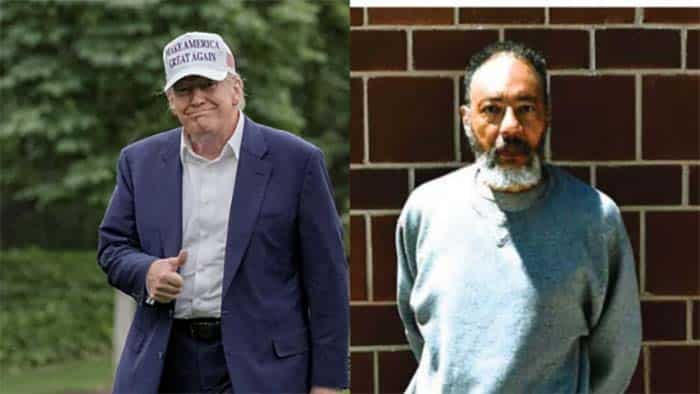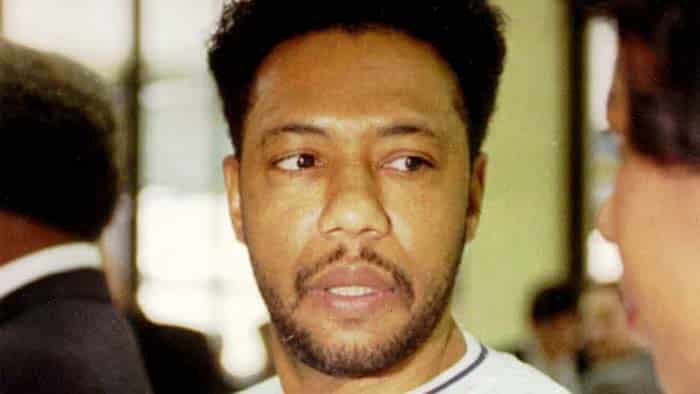Larry Hoover’s Release:
From Gang Leader to Health Reformer
Larry Hoover release health reformer story stirs controversy—can a former gang leader become a voice for healthcare justice in underserved communities?
How Can Prior Authorization Remote Help Your Practice?
See how Portiva is making a real difference in medical practices through our clients’ experiences. Watch this short video to see the impact for yourself, and let’s talk about how we can help streamline your operations and improve patient care today!
Table of Contents
In a stunning turn of events that’s ignited headlines and heated debate, larry hoover release health reformer once the feared founder of the Gangster Disciples, is now at the center of an unexpected new chapter—one that could shape the future of healthcare reform in underserved communities.
After decades behind bars, Hoover was granted clemency by former President Donald Trump on May 28, 2025, in a move that shocked both critics and supporters. Now 74, Hoover’s release has opened the door to not only redemption but social reintegration and potential community advocacy. But what’s grabbing attention isn’t just the politics—it’s the emerging narrative that Hoover could help reform the very systems that once failed him, including healthcare access in low-income urban neighborhoods.

A Second Chance with a Bigger Mission
Hoover’s release from federal prison was met with mixed reactions. Some called it justice deferred, while others worried about the message it might send. But those closest to Hoover insist he’s changed—and now sees the world, and his role in it, differently.
“He’s had time to reflect. And what he sees clearly now is a system that needs healing,” said one of Hoover’s attorneys.
That healing, ironically, may begin with healthcare. For years, Hoover suffered from chronic medical conditions behind bars, reportedly receiving inadequate treatment. His story echoes a bigger problem: America’s incarcerated population often faces limited access to proper medical care, and the communities they return to are often just as underserved.
Healthcare Reform from an Unlikely Voice
It may sound surprising—a former gang leader becoming an advocate for healthcare reform—but when you think about it, it makes sense.
Communities like those Hoover once influenced often struggle with poor access to healthcare, high rates of mental illness, addiction, and trauma, all of which fuel cycles of violence and incarceration. Hoover, now outside those prison walls, is uniquely positioned to speak to that reality.
He’s lived it. And now, he may be ready to lead the conversation about how to fix it.
What Our Clients Say About Us!
Discover how our dedicated clients have achieved their goals and transformed their businesses with our expert solutions. Join the ranks of satisfied customers and experience the difference for yourself.
Boost your Efficiency with
Portiva's Virtual Medical Assistant Services
Portiva’s Virtual Medical Assistant Services help healthcare providers streamline administrative tasks, improve efficiency, and enhance patient care all while reducing workload and costs.
Medical Assistant
Insurance Verification
Medical Receptionist
Prior Authorization
Medical Scribe
Dental Assistant
Medical Transcription
Executive Assistant
Medical Billing
Medical Billing
Enter Portiva: A Model for Healthcare Access
If there’s one company positioned to support this vision, it’s Portiva—a healthcare solutions provider known for staffing Portiva’s remote medical scribe, who help clinics and providers reduce wait times, improve patient support, and bring healthcare services into communities that need them the most.
Portiva’s model of remote staffing isn’t just efficient; it’s transformational. Clinics that once struggled to afford full-time in-house staff can now hire skilled professionals virtually—saving costs while maintaining compliance and continuity of care.
In areas Hoover once called home, this is exactly the kind of change needed. Imagine neighborhood clinics that are fully staffed thanks to Portiva’s remote medical scribe, providing mental health screenings, chronic condition monitoring, and scheduling support, even for residents without regular access to transportation.

From a Legacy of Violence to a Platform for Healing
Hoover’s past will never be forgotten—but it doesn’t have to be the final chapter.
“I don’t want to be remembered for destruction. I want to be part of rebuilding,” Hoover once said in a 2018 hearing.
That rebuilding begins with voices like his advocating for holistic solutions—solutions that don’t just target crime, but the underlying conditions that feed hopelessness: poverty, poor education, untreated trauma, and yes, limited access to healthcare.
Hoover’s transition from gang leader to potential health reformer may sound improbable, but it might be exactly the kind of grassroots, real-world leadership that gets people to pay attention.
What Comes Next?
Time will tell what Hoover does with his second chance. But one thing is certain: his voice carries weight, especially in the very neighborhoods where traditional voices of change often get ignored.
If he chooses to advocate for mental health programs, partner with clinics powered by companies like Portiva, or speak out about healthcare reform—he could become part of a new era of urban renewal, one grounded not in fear, but in healing.
And in a world quick to cancel, perhaps this story shows there’s still room for redemption with real purpose.
Final Thought:
The question isn’t whether Larry Hoover can change the world. It’s whether we’re ready to listen—especially when that voice comes from the unlikeliest place, carrying the weight of lived experience and the will to build something better. Learn more about how this kind of transformation is already taking shape.

